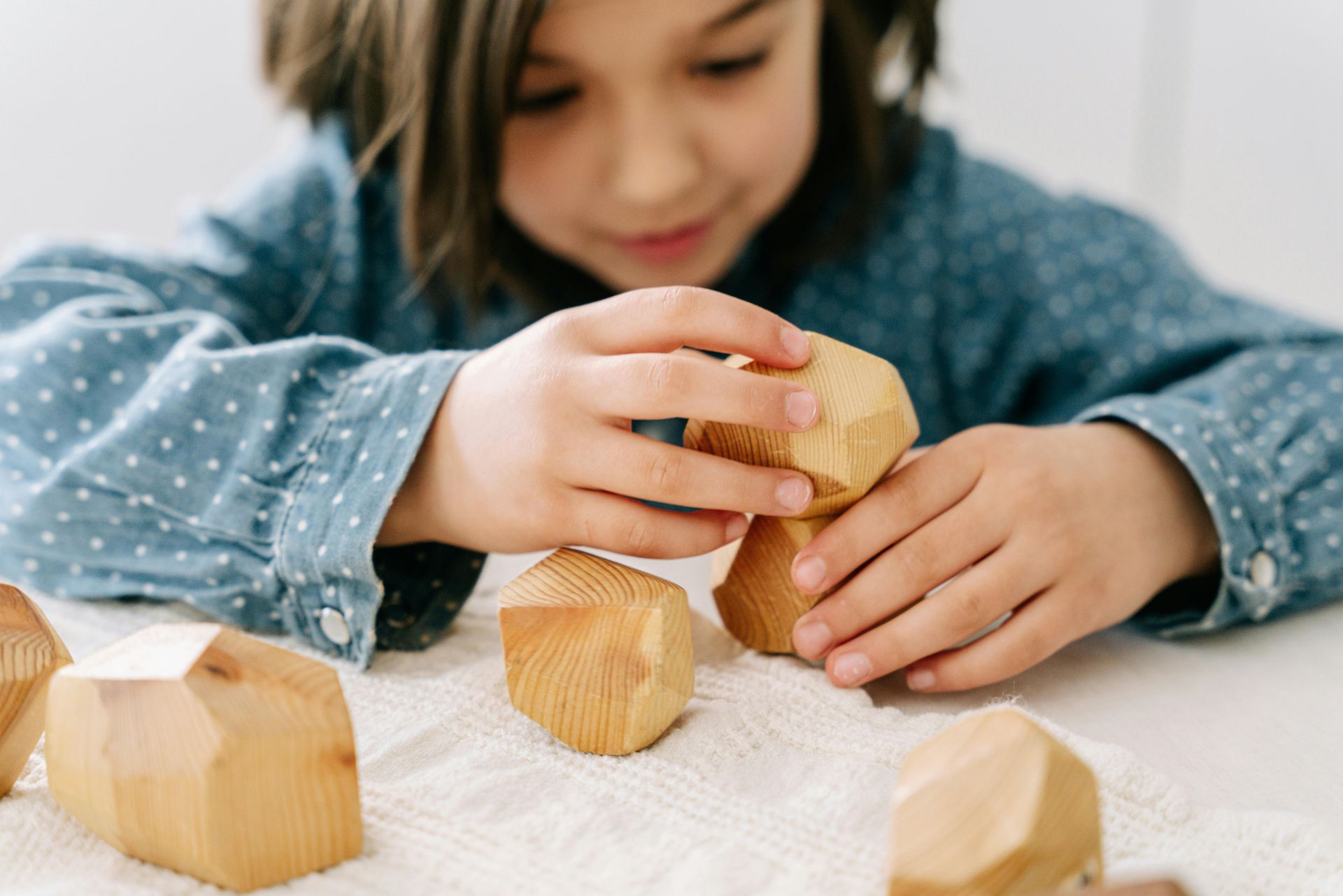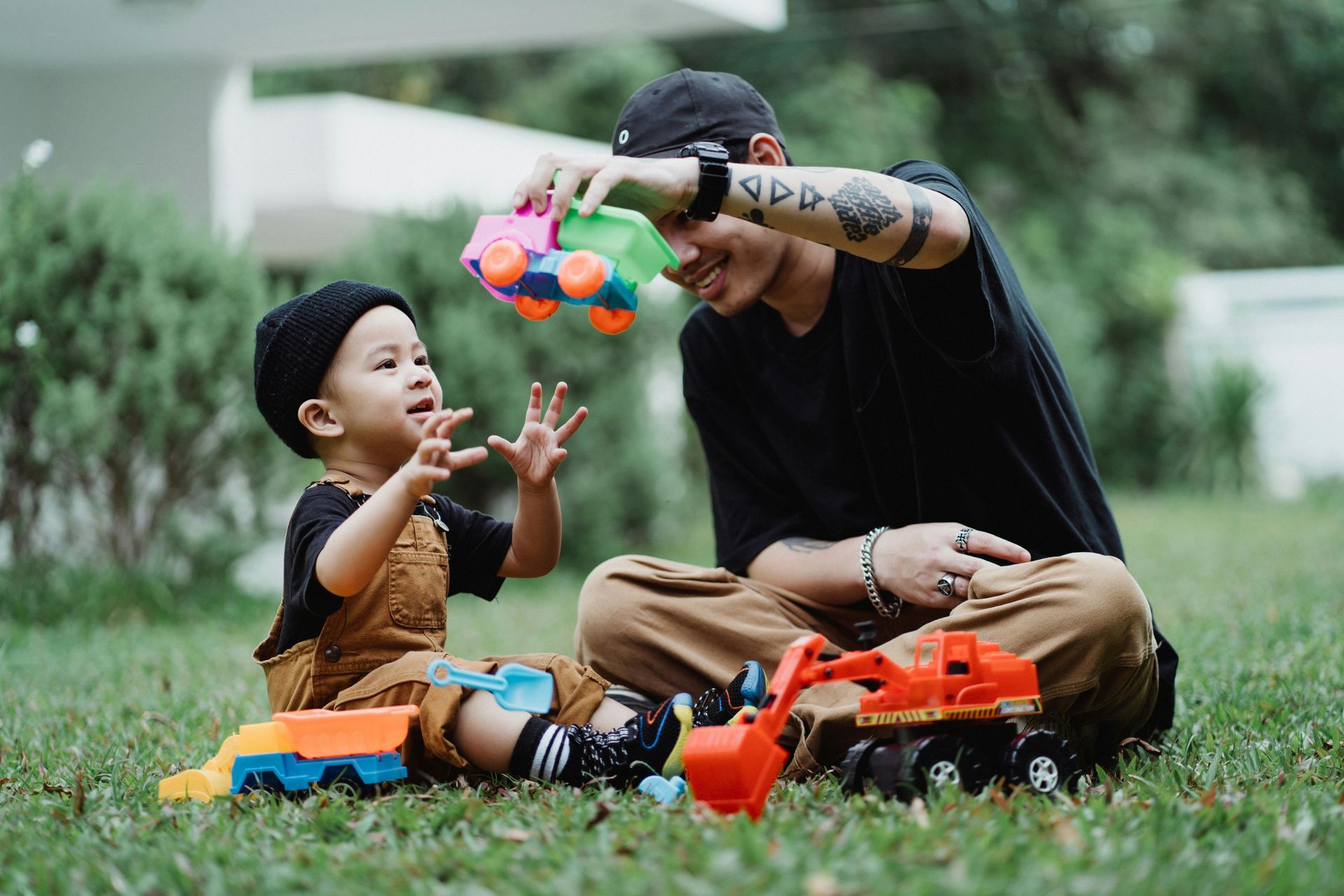Exploring Child's Play Therapy As A Mental Health Support Tool-💜
CNS Healthcare • July 18, 2025
If your child is having difficulty managing their emotions or making friends, you might feel a little helpless or not sure what to do. Fortunately, therapy can help! One of the tools used by CNS Healthcare in Oakland County is child's play therapy. This method of therapy uses the natural language of play to help support young children's mental health.
In this post, you'll learn how play therapy can influence child development, and allow your child to build coping strategies, improve their communication skills, and boost self-esteem...all within a supportive environment. Find out how child's play therapy could be the first step towards positive change for your family.
Key Takeaways
- Child’s play therapy involves using toys, games, and art to help children express their emotions, including those who can’t communicate well with words.
- Children with Autism Spectrum Disorder, ADHD, anger issues, eating disorders, family issues including divorce, and trauma or abuse can all benefit from child's play therapy.
- Kids can develop better coping and problem-solving skills through play therapy. In fact, many families notice improvements with reduced anxiety and less behavioral issues at home or school.
- Studies conducted by the Association for Play Therapy observed that children tend to open up more through playing with dolls or games than talking directly. Parents also note that their child often becomes more confident and expressive.
What is Child's Play Therapy?
With child's play therapy, kids express themselves through toys, games, and art to help share their feelings in a safe space. During each play therapy session, a child expresses worries and fears through play activities instead of communicating using words.
While a child plays, a trained therapist observes their actions and guides the therapeutic process inside a carefully designed playroom. For kids that find talk therapy difficult, they can play with items like board games, sand trays, puppets, or drawing supplies to communicate in a new way.
This type of child therapy is ideal for kids who suffer from Autism Spectrum Disorder, attention deficit / hyperactivity disorder, behavioral problems, chronic illness, anger management, eating disorders, sexual abuse or other family issues.
With every visit, a registered play therapist is building a trusting relationship with your child. This unique approach helps kids begin the healing process at their own pace and within a safe space.
How Play Therapy Supports Mental Health
Play therapy is a unique type of therapy where kids can express themselves through movement and play instead of words. This version of self-expression can be effective in supporting the mental health of children.
Enhancing Emotional Expression
In this type of therapy, a child play therapist or school counselor will guide children to act out stories or draw their inner world. They will observe them playing with toys and games, creating a therapeutic approach that allows kids to express anger, fear, sadness, or happiness without even realizing it.
This method can also increase emotional intelligence by helping children to name the feelings they are feeling.
Group play therapy is another related type of therapy that helps kids interact in a group setting and open up more freely with each other. This therapeutic play builds trust between children and their therapist. Having this strong therapeutic relationship can especially encourage shy kids to bring up problems they couldn't talk about before.
Building Coping and Problem-Solving Skills
Play therapy gives your child the tools to calm down when they are feeling upset or worried. A child therapist might guide a child through drawing activities, acting out stories, or using sand play to help them express emotion.
Additionally, children are learning problem-solving skills by working through their problems in play therapy. For example, they might use blocks to build a solution for a pretend problem with family members.
Children attending regular sessions of play therapy have more advanced coping mechanisms and less behavioral issues at home and school. Many parents have noticed that their kids become more confident with every passing session.
Benefits of Play Therapy for Children
Play therapy helps children learn to express their feelings as well as boost their social skills, making it easier for them to meet and interact with friends.
Kids will usually feel less anxious, too. Many kids benefit from positive changes at home and school after meeting with child-centered play therapists, and reduce their behavioral issues over time.
Improved Communication and Social Skills
After some time in child play therapy, you may notice that your child is becoming more open and confident in social environments. When kids engage with others during therapy, they are practicing critical communication skills that help build their confidence and mental health.
Various other therapies like speech therapy or occupational therapy can also support these skills. These services can help children struggling with speech difficulties overcome and improve their overall ability to interact with other kids.
Reduced Anxiety and Behavioral Issues
Child-centered play therapy can help children that worry a lot feel less anxious. When kids play, they are sharing these emotions in a safe space, making it easier for them to express what’s truly bothering them.
Behavioral issues are often linked to the stress and anxiety found in children. Drawing, acting, or building with blocks allows them to access their problem-solving skills and calm their minds.
This creative approach to therapy strengthens children's emotional regulation and builds up their social skills as well. Because of this, you may observe your child acting out less at home or school.
Play Therapy for Mental Health
Child's play therapy can be a powerful tool for mental health support. Through simple activities like playing games, interacting in a group, and role-playing, children are able to easily express their feelings, build critical social skills, and cope with difficult challenges. You will see improvements in their communication and social skills over time.
Many Michigan families have reported positive changes after taking advantage of this beneficial therapy. If your child needs help, CNS Healthcare is here to guide you. Talk with our team of experts today and find out how play therapy can improve your child's mental health, and overall well-being.
FAQs
1. What is play therapy and how does it help a child's development?
Play therapy is a type of therapy that leverages play time to support a child’s ability to more effectively express their feelings, work through behavioral difficulties, and grow emotional intelligence. Children build trust with designated occupational therapists or school counselors, making it easier for them to talk about problems at home or in their daily life.
2. Can play therapy be used with other types of therapy?
Many family therapists often combine play therapy interventions with art therapy or even Cognitive Behavioral Therapy. The combination of therapies can provide more engaging sessions for children while also helping families learn new ways to interact and understand them.
3. Who provides play therapy services for children?
Licensed family therapists, occupational therapists, and school counselors offer play therapy. You may also find that those that practice feeding therapy use elements from the play therapy approach when assisting children with eating challenges.
4. Is there proof that play therapy works for social anxiety or behavioral issues?
Studies have shown that the effectiveness of play therapy is beneficial in helping kids manage their social anxiety as well as other behavioral difficulties. Many parents see many positive changes after their child begins play therapy!
5. How do families get started with child’s play therapy?
The first step is to look up local community resources or speak with your family doctor about options. If you are a local Michigan resident, you can connect with CNS Healthcare to learn more about our play therapy approach to improving children's mental well-being.
Newsletter
Stay up to date by subscribing to our newsletter.
Recent Posts
SHARE THIS POST WITH YOUR FRIENDS













